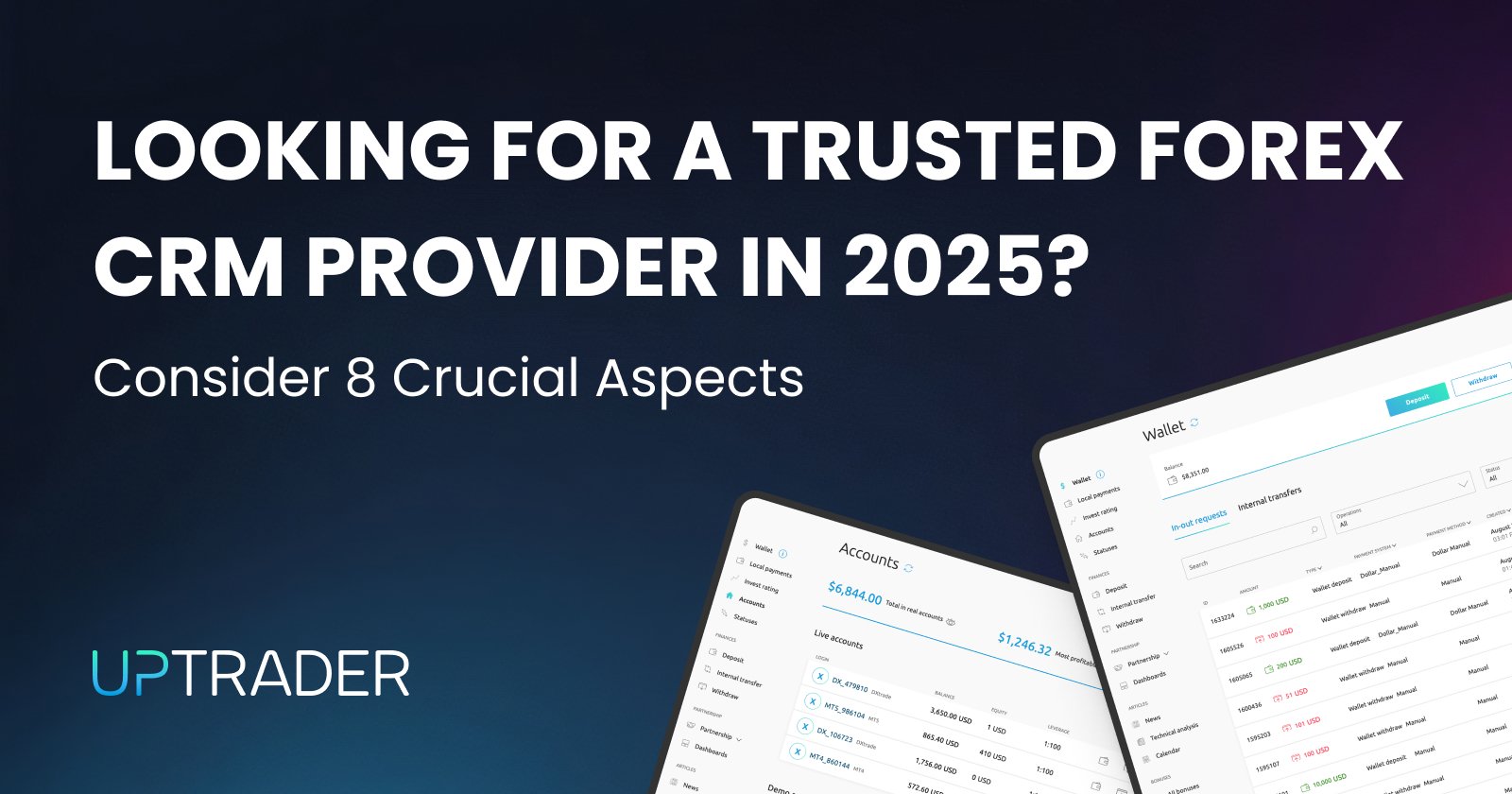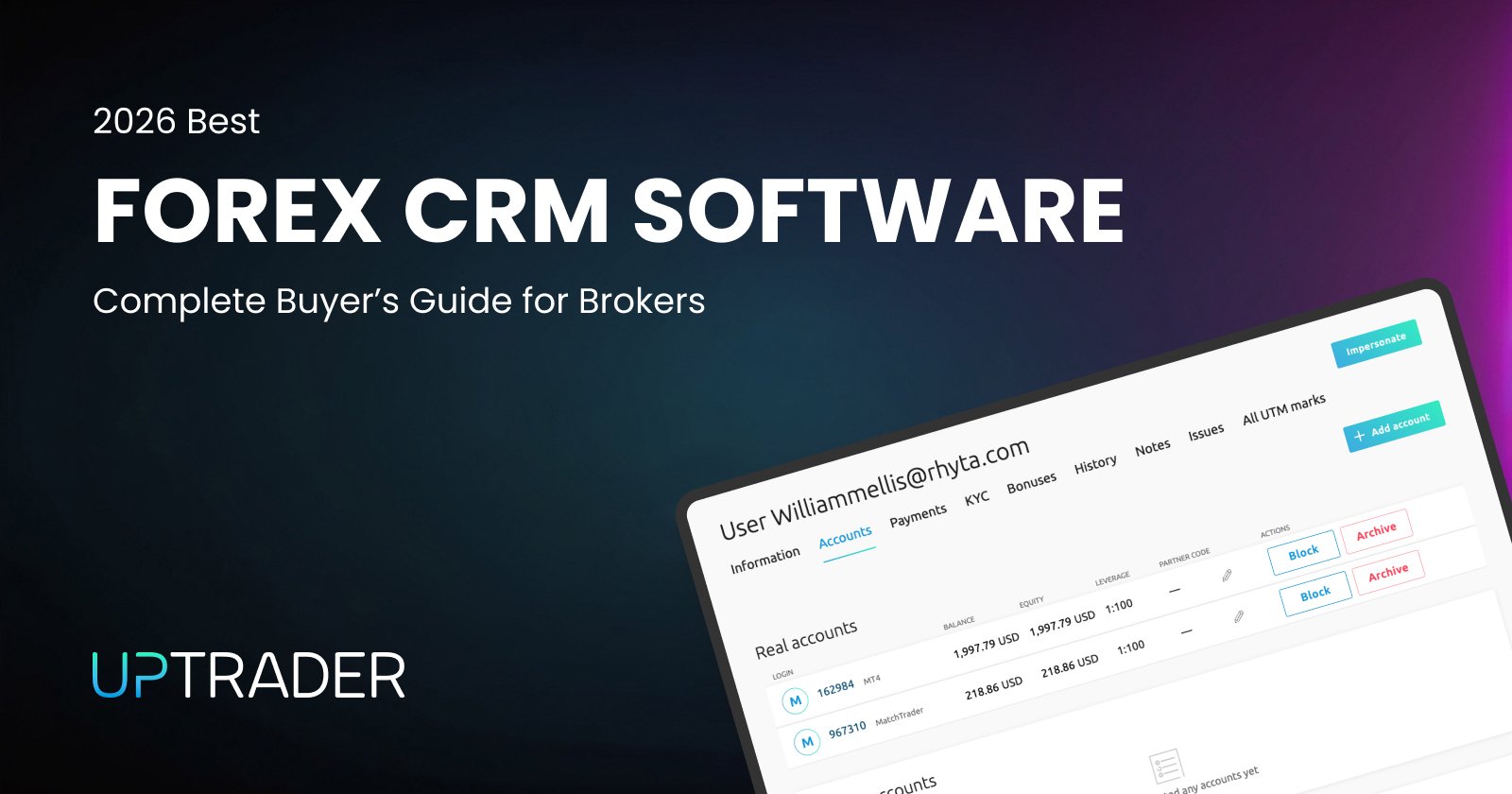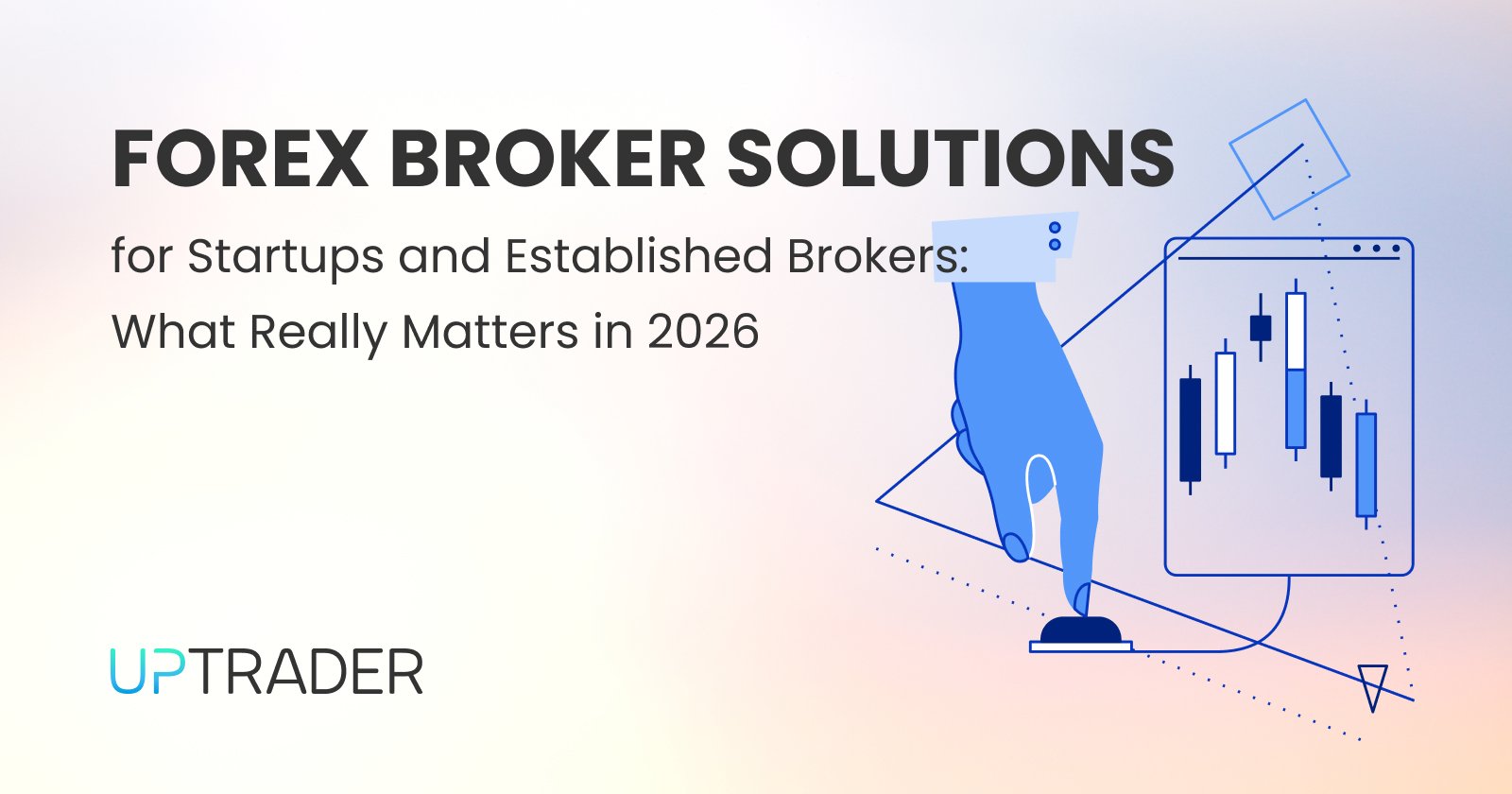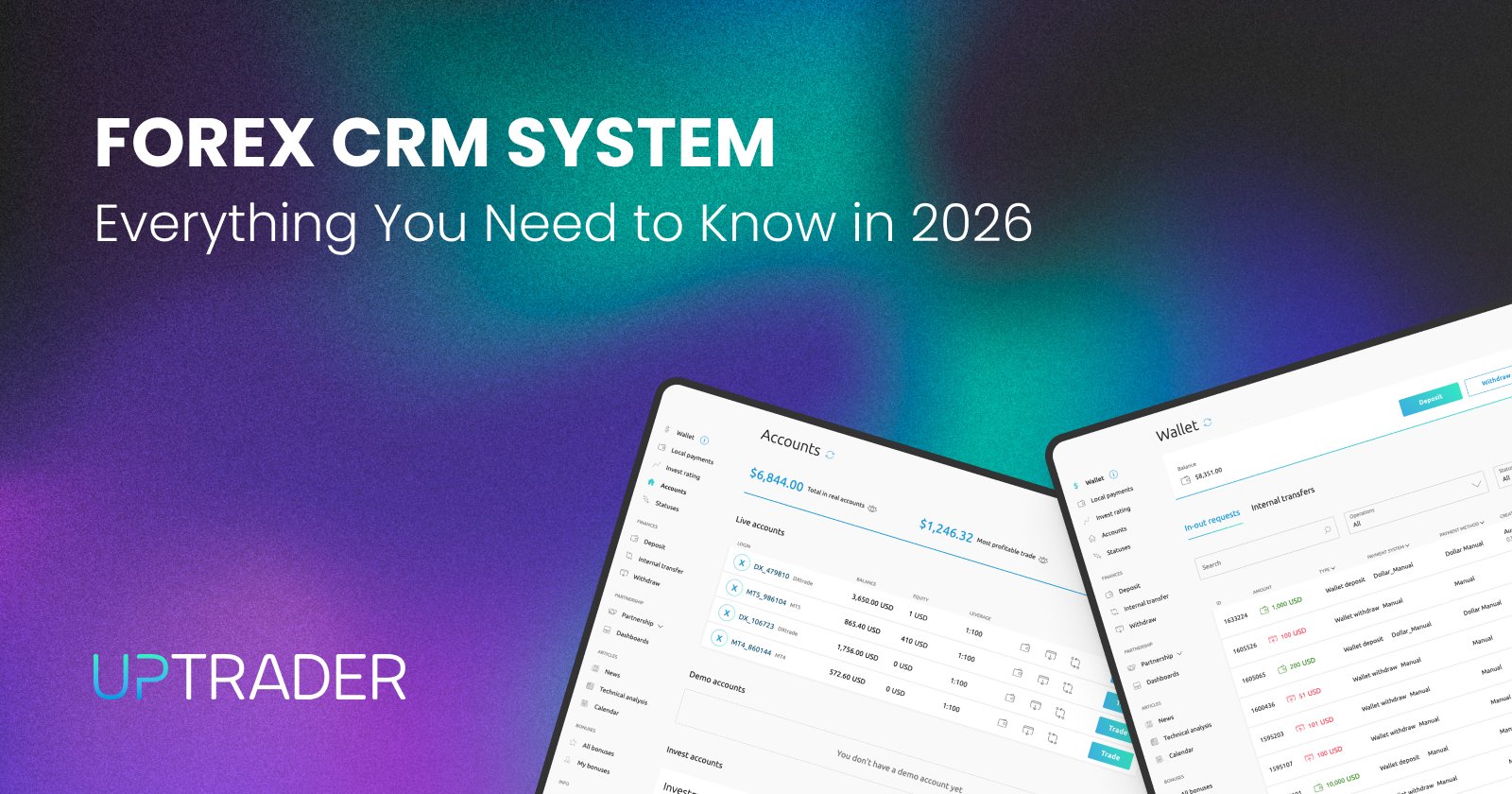Looking for a Trusted Forex CRM Provider in 2025? Consider 8 Crucial Aspects.

Share this publication:
The foreign exchange industry is changing at a fast pace, and brokers in 2025 will need smarter tools, more advanced strategies, and seamless client management. To remain competitive, businesses need to understand that selecting their Forex CRM provider is not purely a technical decision, but rather a strategic one as well. Forex CRM provider assists companies in streamlining operations, enhancing customer loyalty, and accelerating expansion. Nevertheless, with the multitude of options available, what is the most effective way to select the best Forex CRM for your brokerage?
Let us locate the eight factors that are important for your decision-making that you need to evaluate before picking a CRM For Forex Broker.
Customization
Every Forex brokerage has a distinct way of functioning. A generic Forex CRM software is bound to provide a set of common features, but it will fail to meet more specific needs. The appropriate provider should be a platform that offers deep customization, enabling you to tailor workflows, reporting dashboards, and client communication systems to your specific business model.
For instance, if your brokerage specializes in high-volume traders, your CRM should support automated trade tracking and real-time margin alerts. Alternatively, if you cater to novice investors, integrating educational resources or multilingual support into the system might be essential. Look for platforms that let you modify fields, create custom modules, and adjust user permissions without needing extensive coding knowledge.
Integration Capabilities: Seamless Ecosystem Connectivity
A CRM for Forex brokers must function as the central hub connecting trading platforms, payment gateways, analytics tools, and marketing systems. In 2025, brokers rely on a suite of technologies—from AI-driven analytics to blockchain-based settlements. Your CRM should integrate effortlessly with these tools to avoid data silos and operational bottlenecks.
Delve into queries toward possible service providers:
- Does the CRM integrate with established trading platforms such as DXTrade or cTrader?
- Is it able to link with payment processors to handle deposits and withdrawals as well as perform compliance checks?
- Is there support for third-party integrations such as chatbots, KYC verification tools, or email marketing applications via an API?
Compliance and Security
The scrutiny of regulation in foreign exchange has heightened, with regions such as the EU, the UK, and the Asia-Pacific implementing stricter client data protection and verification laws. A valid CRM broker solution needs to focus on compliance components such as automated audit trail systems, data region locking, and real-time reporting to regulatory agencies.
Security is critical. The provider should have end-to-end encryption, and multi-factor authentication (MFA), and conduct regular penetration tests. In this case, reputation is everything, and a single cybersecurity attack can place your reputation at risk and subject you to heavy fines. This is not an area to cut corners. Providers certified under ISO 27001 or similar standards should be adopted.
Client Onboarding and Management: Simplifying the Journey
The first impression is everything. A cumbersome registration process within CRM accounts can deter prospects. The most effective Forex CRM's enable instant account creation funding and identity verification with the click of a button. e-signature, document upload portals and AI-driven form fill allow for effortless submission and reduce drop-off and friction points.
Post-onboarding, the CRM should empower your team to manage client relationships proactively. Look for tools like:
- Automated re-engagement campaigns for inactive clients.
- Segmenting clients based on their trading activity, account size, and risk tolerance.
- Loyalty programs that are tiered to incentivize more seasoned traders.
Centralized client information allows your team to offer personalized services that increase retention.
Automation: Freeing Time for Strategic Tasks
Manual processes are the Achilles’ heel of scaling brokerages. Modern Forex CRM software leverages automation to handle repetitive tasks, from sending trade confirmations to reconciling payments. For example:
- Trigger emails or SMS alerts when a client’s balance falls below a threshold.
- Auto-assign leads to sales agents based on geographic or linguistic criteria.
- Should provide introducing brokers (IBs) the capability to create commission reports with no manual effort.
Automation increases productivity and enables your team to focus on critical aspects of their roles including relationship management and strategy formulation.
Scalability: Growing Without Constraints
Scaling up from 100 clients to 10,000 will be an issue for a CRM that supports 100 clients. Consider the following:
- User Volume: Will the system handle new customers efficiently?
- Feature Scalability: Are the additional business needs being met with new premium features (advanced analytics, AI modules, etc.)?
- Global Reach: Does it support multi-currency accounts, time zones, and regional compliance rules?
Avoid providers that lock you into rigid plans. Flexibility is key in a dynamic market.
Analytics and Reporting: Data-Driven Decision Making
In 2025, intuition alone won’t cut it. The best Forex CRM comes with in-depth analysis dashboards that convert data into insights that matter. Look out for features like:
- Live tracking of profit/loss incurred with every client or IB.
- Conversion funnel analysis to determine where customers do not complete the funnel.
- Predictive analytics for customer churn, deposits, or other important metrics.
Reports are equally important when speaking to stakeholders or when filing audits. The ability to create detailed reports that can be exported on demand and customize them is vital.
Support and Training: Ensuring Smooth Adoption
Even the best Forex CRM can fail if a user application fails. Lastly, check how effective the provider is in client onboarding, training, and support. How fast can users resolve issues and are there video tutorials, live chat, or dedicated account managers available 24/7 to help?
Test the system to evaluate usability. Lack of staff training may result in poor implementation of the system and wasted time. Usually, providers focusing on direct training or having a forum where staff interact allocate resources more efficiently.
Final Thoughts: Making an Informed Choice
Finding a Forex CRM provider in 2025 comes down to choosing a platform that meets your needs now and in the future. Customization, integration, compliance, and scalability should be the focus of a brokerage firm looking to streamline operations for future growth.
Remember, the right CRM broker solution isn’t just a tool—it’s a partner in your growth journey. Take the time to demo platforms, consult user reviews, and ask peers for recommendations. In a competitive landscape, the edge often goes to brokers who invest in technology that empowers both their team and their clients.
Choosing a CRM is a pivotal step for Forex brokers. By focusing on these eight aspects, you’ll navigate the crowded market confidently and select a system that drives efficiency, compliance, and client satisfaction well into the future.
If you want to make use of these amazing features under a “single roof” then talk to a consultant on UpTrader today to try our robust CRM solution. If you are not comfortable with buying and want to just give it a try you can request a personalized demo so you know what you are getting into.







